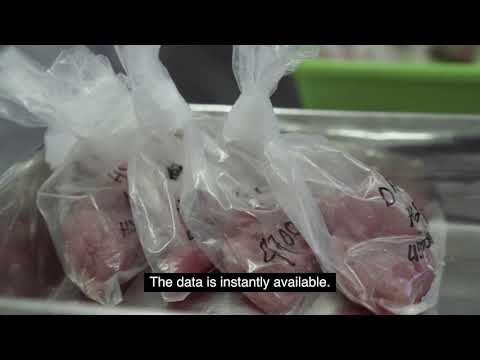At the World Economic Forum Annual Meeting in Davos, the SAP Next-Gen program highlighted opportunities for synergies among sustainability initiatives of governments, corporations, and non-profits, tapping into the creativity and passion of citizens, the disruptive innovation of startups, and the resources of corporates and governments to scale solutions to the 17 UN Sustainable Development Goals (SDGs).
From Environmental Impact to SDG Impact
Industries as diverse as food and fashion share a common challenge: how to accelerate the impact of sustainable business practices in resource-intensive industries.
A recent McKinsey report highlights the heavy resource demands of the fashion industry and the excessive waste associated with disposing unfashionable or worn-out garments. Making clothes typically requires using a lot of water and chemicals, emitting an average of 23 kilograms of greenhouse gases for every one kilogram of fabric produced. And, nearly three-fifths of all clothing produced ends up in incinerators or landfills within a year of being made.
To focus attention on the need for more sustainable practices in the fashion industry, 10 different UN organizations agreed in 2018 to establish the UN Alliance on Sustainable Fashion with the aim to change the path of fashion, reducing its negative environmental impact and turning it into a driver for the implementation of the SDGs. The alliance will formally launch during the upcoming UN Environment Assembly in March.
Sustainable Fashion: The New Normal
“We were pleased to be part of the conversation among fashion industry leaders in Davos around facilitating industry-wide collaboration to accelerate adoption of sustainable business practices in the fashion industry,” said Alicia Tillman, chief marketing officer, SAP. “SAP is committed to helping our customers innovate with our technologies for social good, in particular to drive exceptional experiences and to create a healthy supply chain. We look forward to continuing to partner to scale the impact of sustainable fashion initiatives with SAP innovations.”
“With SAP’s strong footprint in the global fashion industry, we can be part of the solution for making sustainable fashion the new normal,” said Ann Rosenberg, senior vice president and global head of SAP Next-Gen. “The most admired apparel retailers in the world run SAP solutions. Our customers produce more than 86 percent of the world’s athletic footwear and more than 63 percent of the world’s brand-name jeans. SAP solutions help bring transparency to supply chains, reduce energy consumption and waste, and provide a platform for innovation in our ecosystem, including with startups that are disrupting the fashion industry for social good.”
In Paris, SAP is working with the makesense incubator to help social entrepreneurs make a difference. One example is Clothparency, which has the ambition to help consumers find and prioritize purchasing products that respect the environment and the people who make them.
SAP is also supporting game-changing startups through SAP.iO Foundries, the company’s global network of top-tier programs, including accelerators, that enables startups to build innovative software that deliver value for SAP customers. Notable startups supported by SAP.iO Foundry New York that are transforming fashion include Sundar (sustainable sourcing and discovery platform for fashion), Stylesage (accelerating speed-to-market and minimizing waste with artificial intelligence (AI)), and EON (embedded Internet of Things (IoT) to power the circular economy in fashion).
Partnerships for Sustainable Fashion
In Davos, SAP Next-Gen forged new relationships aimed at accelerating the impact of sustainable business practices in the fashion industry.
“With the broad use of SAP software in the fashion industry, companies around the world have opportunities to further adopt sustainable business processes enabled by SAP,” said Eva Kruse, CEO and president, Global Fashion Agenda. “I am delighted that they joined us in Davos for the launch of our CEO Agenda 2019, where we discussed the strategic priorities that fashion leaders must adopt to drive industry-wide change. SAP provided valuable insights, and we hope to continue to work with them for future initiatives.”
Along with the call-to-action for sustainability in fashion in Davos, SAP Next-Gen plans to bring a strong focus on expanding public-private partnerships globally and showcasing successes of and pathways to greater sustainability in fashion through events in 2019, such as at New York Fashion Week in February, the UN Alliance on Sustainable Fashion in March, and the Copenhagen Fashion Summit.







